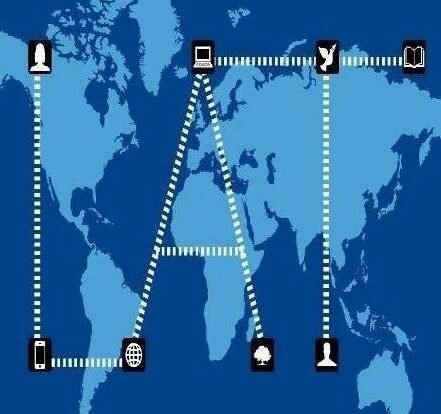As Nepal embraces the digital era, the risk of Online fraud becomes a pertinent concern for individuals and businesses alike. This blog delves into the various facets of digital security in Nepal, shedding light on common scams and providing practical guidance to safeguard against cyber risks.
In the intricate web of Nepal’s digital landscape, Fraud manifests in diverse forms, posing a significant challenge to individuals and businesses. One prevalent form is the insidious email phishing scams that exploit the trust of unsuspecting users. Nepalese individuals may receive deceptive emails impersonating trusted entities like banks or government agencies, coaxing them into divulging sensitive information. Additionally, cultural events, such as Dashain and Tihar, become ripe opportunities for scammers who create fraudulent websites or charity schemes to exploit people’s generosity during these festive occasions.
The surge in online shopping in Nepal has also given rise to e-commerce fraud, where fraudulent websites peddle fake or non-existent products, leading consumers to financial losses. Nepalese consumers navigating the digital marketplace must exercise caution to distinguish between legitimate and fraudulent platforms. Moreover, the allure of winning a lottery or prize is used as bait in lottery fee fraud, a scheme that demands a fee for the collection of a non-existent windfall. The Nepali-language lottery scams often target individuals dreaming of financial prosperity.
Social media, a ubiquitous part of modern life, is not immune to fraud in Nepal. Scammers adept at impersonation exploit social media platforms to impersonate friends or family, leading to deceptive requests for money or personal information. The Nepalese populace must be vigilant against such tactics to avoid falling victim to these sophisticated scams.
In the face of these challenges, safeguarding against digital threats in Nepal demands a multifaceted approach. The adoption of secure online practices, such as verifying email sender authenticity, ensuring secure transactions, and critically evaluating offers, is essential. Furthermore, individuals must exercise caution on social media, limiting personal information and scrutinizing friend requests to thwart social engineering attacks. Local awareness initiatives, including community efforts, government campaigns, and staying informed about prevalent scams, contribute significantly to building a resilient defense against the ever-evolving landscape of online security in Nepal.
- Types of Cyber Threats in Nepal:
- Cyber threats in Nepal encompass phishing, data breaches, and scams targeting cultural events and online platforms. Understanding these types is crucial for effective prevention.
- Common Digital Scams in Nepal:
- Email Phishing Scams in Nepali Context: Fraudsters often pose as trusted entities, such as banks or government agencies, tricking users into revealing sensitive information.
- Festival-related Scams: Exploiting cultural celebrations like Dashain and Tihar, scammers may create fake donation websites or charity schemes, preying on people’s generosity during these festive times.
- Nepalese E-commerce Frauds: With the rise of online shopping, Nepalese consumers may encounter fraudulent websites selling fake or non-existent products, leading to financial losses.
- Nepali-language Lottery Fee Fraud: Scammers may send messages claiming the recipient has won a lottery, demanding a fee for prize collection, a scheme that preys on the desire for financial windfalls.
- Social Media Impersonation: Nepalese individuals may fall victim to scams involving impersonation of friends or family on social media, leading to fraudulent requests for money or personal information.
- Protecting Yourself from Digital Threats in Nepal:
- Email Vigilance: Verify sender authenticity before acting on unexpected emails, especially those related to financial transactions or personal information.
- Secure Transactions: Ensure secure connections for online purchases and avoid public Wi-Fi for sensitive transactions, especially when engaging with Nepalese e-commerce platforms.
- Evaluate Offers: Be cautious of unrealistically favorable offers and unsolicited messages, particularly those exploiting cultural events or festivals.
- Guard Personal Information: Exercise caution on social media, scrutinizing friend requests and limiting personal details to prevent social engineering attacks.
- Local Awareness Initiatives: Stay informed about local scams through community initiatives, government campaigns, and news sources that highlight specific digital security risks in Nepal.
Navigating the landscape of online fraud in Nepal requires a combination of awareness, vigilance, and proactive measures. By staying informed and adopting secure online practices, individuals can contribute to a safer cyber environment for themselves and others.

FAQs:
1: How prevalent is cybersecurity in Nepal?
Cyber threats are on the rise in Nepal, mirroring global trends. Cybercriminals adapt their tactics to exploit individuals and businesses, making awareness crucial.
2: Can digital dating scams be prevented?
While not foolproof, individuals can safeguard against online dating scams by being cautious, verifying identities, and avoiding financial transactions with unknown contacts.
3: Are internet transactions safe in Nepal?
Online transactions can be secure if conducted on reputable websites with encrypted connections. Avoid making transactions on unsecured platforms.
4: How can I check the legitimacy of online offers?
Verify the credibility of online offers by researching the company, checking reviews, and confirming contact details before making any commitments.
5: Can using a virtual private network (VPN) enhance cybersecurity?
Yes, a VPN can add an extra layer of security by encrypting your internet connection, making it harder for cybercriminals to intercept data.
6: Are there government initiatives to combat digital fraud in Nepal?
The government of Nepal has taken steps to address cybercrimes, but individuals should also play an active role in staying informed and adopting secure online practices.
7: How often should I update my passwords to prevent cyber threats?
It is advisable to update passwords regularly, ideally every three to six months, and use a combination of letters, numbers, and symbols.
8: What steps should businesses take to protect against online security?
Businesses should implement robust digital security measures, educate employees on online threats, and regularly update their security protocols.
9: Can public awareness campaigns help combat cyber threats in Nepal?
Yes, public awareness campaigns play a vital role in educating individuals about digital threat risks and promoting safe online practices.
